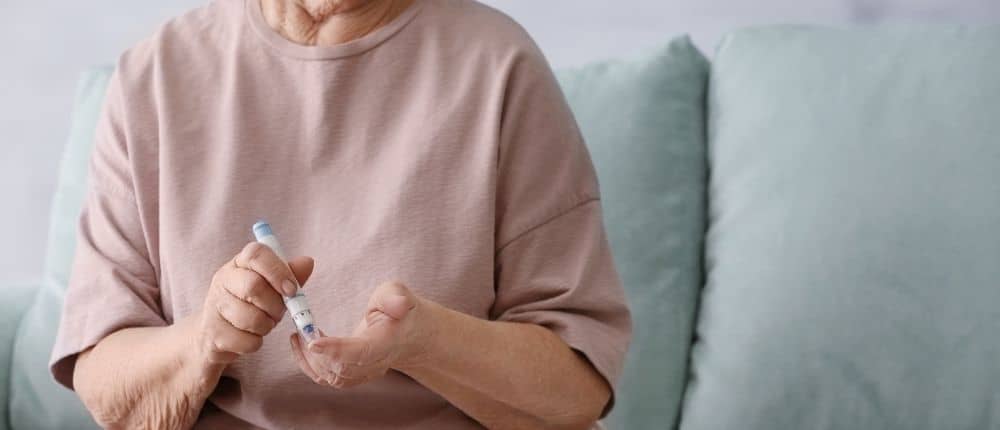
This website uses cookies to improve your experience. We'll assume you're ok with this, but you can opt-out if you wish. Read More
The Next Round: What happens after you change your drinking?

We get asked a lot of questions at Club Soda about Diabetes and alcohol, and it’s a topic we’ve explored from a number of perspectives. World Diabetes Day is November 14th, and this year is particularly special as 2021 marks 100 years since the lifesaving discovery of insulin was made. So, what is diabetes? And what does alcohol have to do with it? We explore a few angles below.
Diabetes is a lifelong condition that causes a person’s blood glucose (blood sugar) level to become too high. The two main types of diabetes are Type 1 – where the body’s immune system attacks and destroys the cells that produce insulin – and the more common Type 2 – where the body does not produce enough insulin, or the body’s cells do not react to insulin. Insulin is the chemical that controls blood sugar levels in the body. This means that not enough of the sugar you consume is converted into energy.
You are more likely to have type 2 diabetes if you are overweight, have high blood pressure or cholesterol levels, or are over 40 years of age. Alcohol comes in as something that could contribute to all of these factors, worsening the risk of long-term health problems. To find out more about how we can address our wellbeing to reduce the risk of developing diabetes, check out our article here.
Drinking is always a personal choice, and many people with diabetes still enjoy alcohol. The most important thing is understanding the relationship between diabetes and alcohol, so that you know the risks and can make the best decisions for you.
If you use insulin or some other diabetes medications, you are more likely to have a hypo. A hypo means hypoglycaemia, which is when your blood glucose level (blood sugar) is too low, usually below 4mmol/l. Drinking alcohol can add to the risk of having a hypo, because alcohol reduces your body’s ability to recover when blood sugar levels are dropping. Our livers store extra glucose which it releases back into the blood when needed, for example, when our blood sugar levels drop. But alcohol affects the liver’s ability to do this effectively.
If you drink a lot or on an empty stomach, you’re even more likely to have a hypo. Your risk of having a hypo doesn’t go away after you stop drinking – it increases, and can last up to 24 hours. It is common for people to mistake someing who is having a hypo for being drunk. You should carry hypo treatments around with you and always wear some medical ID. You should also make sure that the people you are with know that you have diabetes, know the signs to look out for, and know how to help you if you do have a hypo.
Speak to your doctor if you’re not sure how your medications affect your risk of hypo, and how they interact with alcohol. Drinking a lot on an empty stomach also increases the risk of having a hypo.
Men are more likely to get diabetes than women and they are more likely to suffer more serious side effects from the condition, and these numbers are sharply increasing. The age-standardised mortality rate for men with an underlying cause of death as diabetes mellitus is 40% higher than it is for women. Men are less likely than women to talk about their feelings, both physically and emotionally. This also puts them at greater risk of turning to substances such as drugs and alcohol as a coping mechanism, and we know that Diabetes and alcohol are linked for a number of reasons. We interviewed a group of men from the Club Soda community about their physical and mental health, and you can find out what they said, here.
If you have diabetes you might want to learn more about sugar and sweeteners in drinks. Check out this podcast episode with Natasha from Urban Cordial speaking to dietician and all-around sugar expert, Laura Tilt about overhauling our drinks. Laura Tilt is a Registered Dietitian and Health Writer. She is fascinated by how food makes us feel, think, and live, and she is passionate about helping us understand the relationship between what goes on our plates and in our glasses and what happens in our bodies. She was the perfect person for Natasha to talk to about their shared interest in sugar, sweeteners, and their potentially harmful effect on our health.
This podcast between Natasha and Laura Tilt focuses on why we crave sugar when changing our drinking. It looks at sugar in alcoholic and non-alcoholic drinks, and whether sugar-free diets are really all that helpful. Then there’s the big question: sweeteners – good or bad? The experts discuss what to do if you are diabetic, and how to read the food and drink labels so that you know how much sugar you are getting. You’ll also find more tips on choosing drinks in our blog about sugar and calories.
If you have concerns about alcohol and diabetes, or how your drinking is impacting your physical and mental health, we encourage you to speak to your doctor. As scary as the prospect of health issues can be, it’s best to face things head-on rather than live in fear. When you have the full picture from your doctor you can take control and make informed decisions about how best to care for your health needs.
If you want to change your drinking behaviour, we have heaps of resources to help you. Our courses could be the perfect place to start, and you can dive into our online community for support from people who are changing their lives through changing their drinking.
This website uses cookies to improve your experience. We'll assume you're ok with this, but you can opt-out if you wish. Read More
| Name | Domain | Purpose | Expiry | Type |
|---|---|---|---|---|
| wpl_user_preference | joinclubsoda.com | WP GDPR Cookie Consent Preferences. | 1 year | HTTP |
| PHPSESSID | www.tickettailor.com | PHP generic session cookie. | 55 years | HTTP |
| AWSALB | www.tickettailor.com | Amazon Web Services Load Balancer cookie. | 7 days | HTTP |
| YSC | youtube.com | YouTube session cookie. | 55 years | HTTP |
| Name | Domain | Purpose | Expiry | Type |
|---|---|---|---|---|
| VISITOR_INFO1_LIVE | youtube.com | YouTube cookie. | 6 months | HTTP |
| Name | Domain | Purpose | Expiry | Type |
|---|---|---|---|---|
| _ga | joinclubsoda.com | Google Universal Analytics long-time unique user tracking identifier. | 2 years | HTTP |
| sbjs_migrations | joinclubsoda.com | Sourcebuster tracking cookie | 55 years | HTTP |
| sbjs_current_add | joinclubsoda.com | Sourcebuster tracking cookie | 55 years | HTTP |
| sbjs_first_add | joinclubsoda.com | Sourcebuster tracking cookie | 55 years | HTTP |
| sbjs_current | joinclubsoda.com | Sourcebuster tracking cookie | 55 years | HTTP |
| sbjs_first | joinclubsoda.com | Sourcebuster tracking cookie | 55 years | HTTP |
| sbjs_udata | joinclubsoda.com | Sourcebuster tracking cookie | 55 years | HTTP |
| sbjs_session | joinclubsoda.com | SourceBuster Tracking session | Session | HTTP |
| Name | Domain | Purpose | Expiry | Type |
|---|---|---|---|---|
| mailchimp_landing_site | joinclubsoda.com | Mailchimp functional cookie | 28 days | HTTP |
| __cf_bm | tickettailor.com | Generic CloudFlare functional cookie. | Session | HTTP |
| NID | google.com | Google unique id for preferences. | 6 months | HTTP |
| Name | Domain | Purpose | Expiry | Type |
|---|---|---|---|---|
| _ga_10XZMT03ZM | joinclubsoda.com | --- | 2 years | --- |
| AWSALBCORS | www.tickettailor.com | --- | 7 days | --- |
| cf_clearance | tickettailor.com | --- | 1 year | --- |
| VISITOR_PRIVACY_METADATA | youtube.com | --- | 6 months | --- |
Join Club Soda for 10% off your first order of drinks for UK delivery. Plus get our latest news and special offers for members to choose better drinks, change your drinking and connect with others.
If you get an error message with this form, you can also sign up at eepurl.com/dl5hPn